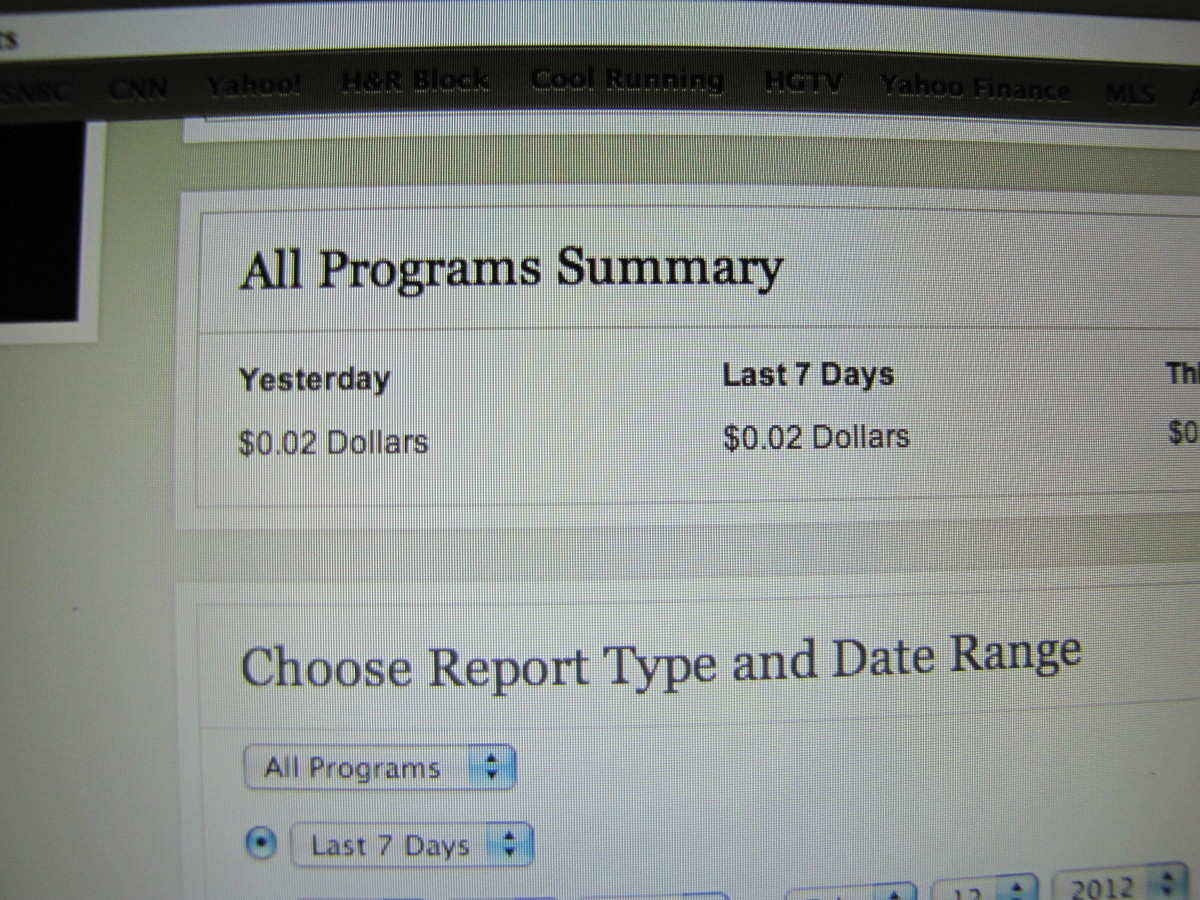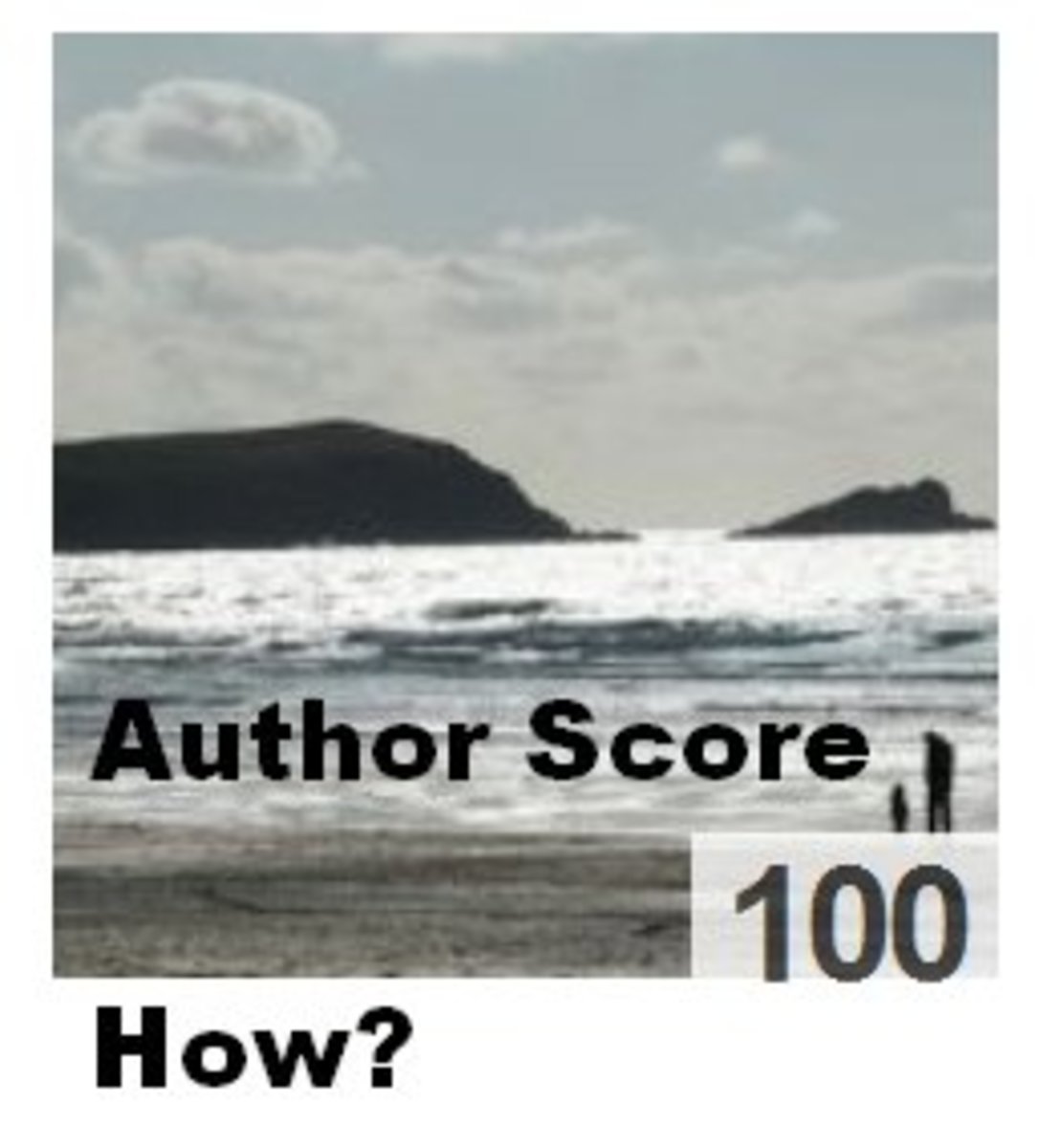Advice and Tips for New Writers: 5 Things I Wish I'd Known When I Started Writing as a Newbie on HubPages
If I Had Only Known as a Newbie....
There are several things I wish I’d known as a new hubber, as it would have gotten my hubs off to better starts (e.g. bringing in more traffic). Knowing those basic things about HubPages and hubbing would also have saved me time later, time spent going back to revise my hubs. That's okay, though. I realize that there is a lot to learn about HubPages or any online writing gig, and I admit I am still learning. As I wrote in my very first hub, "Getting Over the Fear of Writing Your First Hub," at some point you just have to get over your fear and start writing. At some point, you must hit that "publish" button. There is always time to learn more. It is my hope, though, that sharing with you these five basic things will help you to avoid having to spend all the time I have in going back to tweak titles, alter format, and change out photos in an effort to revise my earlier hubs..
1. Keep Your Title Simple
Choosing your hub title is a very important step in getting traffic to your hub. I was trying to come up with fancy titles to catch readers’ interest, titles that would be more appropriate for the pages of a magazine. Later, I learned that simple search-engine friendly titles will bring in more traffic. Think about it. Are readers going to type in “How to Create a Captivating Chili with Zest and Zing” or “How to Make Chili"? So, go with the simpler title that searchers will be “googling.” Your title will create the URL that search engines find. Some say you could later edit the title to add in the more eye-catching words, but keep your original title simple in order to create a search-friendly URL. Another option is to dress up the title with catchier wording in your text itself or in the capsule headings, which brings me to the next trick I wish I had known.
2. Use Capsule Subtitles
Find logical breaks in your writing to break up into sections. See the "Add More Capsules" at the upper right of the page you are editing? Click on "text" to add more text boxes. Copy and paste your text (if you're writing from Word) into different boxes to separate a long narrative. Do put a title with keywords in the capsule title box as this subtitle can also bring more traffic to your hub. These headings will automatically appear in bold print, which will make the article easier to follow; an article with breaks and subtitles is easier to follow and may keep the reader reading until the end. I’ve looked back at some of my earlier hubs that just keep going on and on, breaking them into smaller sections to make them more appealing to readers.
3. Do Not Use Google Images
Pictures on Google Images are so easy to use, and you can just about find any photo you want. Still, most are copyrighted and you need permission to use them .I've looked, and I haven't found an easy way to get to a source that might be able to give you permission. Instead, use photo sources you know are legal to use, and give credit. Look for photos with a Creative Commons license for commercial use. Then learn how to properly and legally attribute the photos. Some sites you can use are
http://www.freedigitalphotos.net/
http://www.copyrightfreephotos.com/
http://commons.wikimedia.org/wiki/Main_page
After about thirty hubs or so, I realized that I had photos that were not properly attributed, so I spent time going back and replacing photos with properly attributed photos from other sites, or, better yet, photos I had taken myself. Also, do put captions in the boxes under the photos. The words there can also bring you more traffic from search engines. HubPages has a basic outline of how to legally use others' images on HubPages.
4. Group the Hubs from the Hub Page You're Editing
At some point, I learned to go into my account where all my hubs were and create groups for similar hubs. It’s much simpler, however, to group your hub as you’re creating it. Look over to the right side of the page when you’re editing to see your choices of reorder, tags, summary, group. Click on group and your subgroups will come up. Of course, you have to create your subgroups first under your account. But once you do, it will be very easy to group your hubs as you go. Then, the related hubs will show up automatically at the bottom of your hub when it is published--right there for your readers to see. This makes it easier for readers to see what else you have written on the subject that they may want to explore further.
Good luck with HubPages!
These are just some basic things that I hope help newer hubbers to start out on the right track. There’s a lot of information to take in, and I’m still working on it. If you have any questions or comments regarding anything in this article, I'd love to hear from you below in the comment section.
5. Don't Follow Other Hubbers Just to Get Followers
Following other hubbers just for the sake of following or just to get them to follow you back can lower your hubber score. Make sure you like what the hubber writes before you click on the “follow” button. Read at least one of his or her hubs, and then look at the topics and hubber profile before deciding to be a follower. This will save you time later of going back to “unfollow” those hubbers you don’t read.
Sign up on HubPages now!
- HubPages
HubPages is your online space to share your advice, reviews, useful tips, opinions and insights with hundreds of other authors. HubPages is completely free, and you can even earn online ad revenue!
More Things I've Learned About Writing Hubs
- 6 Best Reasons for Writers to Join HubPages
Why join HubPages? Many writers join HubPages to earn money, but there are actually many more reasons to join this community of writers. - How to Come up with Hub Topics
How do you come up with ideas for hubs? Keep a notebook, take photos, ask and answer questions, and more! - Getting Over the Fear of Writing Your First Hub
Fear is definitely a factor in procrasination. Writing my first hub came after months of researching the site and reading other writers' hubs. At some point, though, you just have to start writing! - How to Keep Your Hubber Score High
How did I ever hit a 100 hubber score? Not sure. Tips on keeping your hubber score high.... Be involved, ask questions, research SEO and backlinks, and just keep writing and learning!








